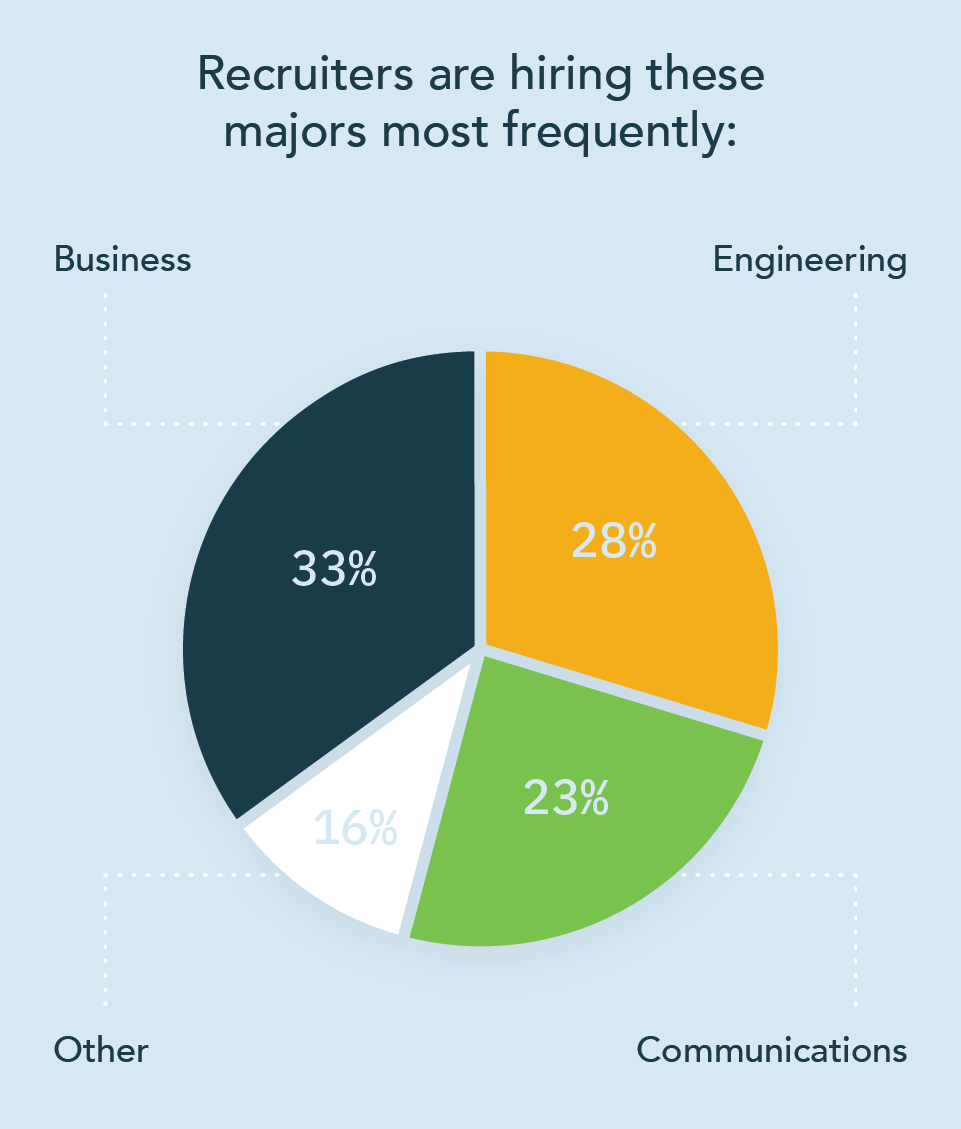Say goodbye to avocado toast and Nirvana posters and hello to iPhones and Ariana Grande tweets. Generation Z is ready to take the stage in record numbers, graduating from college and setting out to begin their careers. Brought up as the first truly digital-native generation, members of Generation Z are talented, highly-connected individuals possessing their own unique worldview.
Newly-minted college grads are entering the workforce armed with different educational backgrounds than millennial and Generation X employees. Many of yesterday’s traditional college majors are falling out of favor, giving way to new areas of study that best prepare students for today’s brightest opportunities.
Employers must take note of changing preferences for college majors. A smaller percentage of grads with certain degrees could signal future talent shortages for specific roles. The 2019 Yello Recruiting Study surveyed the first wave of Gen Z talent as well as millennials and Gen X graduates to identify their chosen degree paths. Take a look at the majors Gen Z is choosing and what they might mean for an employer’s recruitment strategy:
Key trends from Gen Z majors:
- Communications and engineering majors are on the rise.
- Business and education majors are on the decline.
- Appealing to recent grads will require a combination of modern technology, relevant recruitment marketing content and a willingness to consider candidates with unique backgrounds.
On the rise:
Engineering majors
One of the sharpest changes is a rise in engineering majors, doubling between Generation X and Generation Z. From aerospace to medicine, this is great news: the United States’ shortage of skilled engineering talent has left a serious gap in industries like manufacturing.
With a high demand for engineers ready to be met by an educated workforce, make sure your employer brand stands out among the competition. Build a talent pipeline to directly source talent using recruitment marketing content to highlight that you’d be a great first home for newly-minted engineers.

*Source: Twitter poll, July 2019
Communications majors
With email, texting and video calls, it’s never been easier to communicate, so it should come as no surprise that Generation Z grads have more than doubled the number of communications majors in comparison to Generation X and millennials. 7% of Generation Z graduates hold a communications degree, which means they possess one of the most important skills employers seek out when hiring new college graduates.
From marketing to media production, Generation Z knows how to get their message out — and employers should take note. Modern communication requires tech savviness and fluency across different messaging, publishing, and social media platforms. If your company isn’t using modern technology, Gen Z will notice — and will be likely to turn down an offer from an employer stuck in the dial-up age.
On the decline:
Business majors
One of the most traditional areas of study for college students, business majors have seen a significant decline for Generation Z, with 12% of graduates following a career path in business compared to 20% of Generation X students.
That eight-point drop might seem significant, but it presents a prime opportunity to hire talent with unconventional backgrounds. Rather than recruiting individuals with a strict education in business, finding out-of-the-box talent may provide the next best solution. A psychology major’s understanding of people, for instance, may help your business connect with its target demographic.
Education majors
If it’s difficult to fill today’s teaching roles, it might be even harder tomorrow: only 6% of Generation Z graduates pursued a path in education, compared to 12% of Generation X.
If you’re looking to hire educators, consider benefits like student loan forgiveness in order to attract interest. It may also be necessary to broaden your overall talent pool, recruiting recently retired teachers or professionals that left the industry in order to avoid long-term staff shortages.



